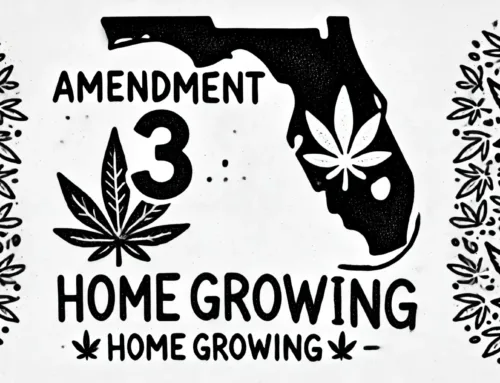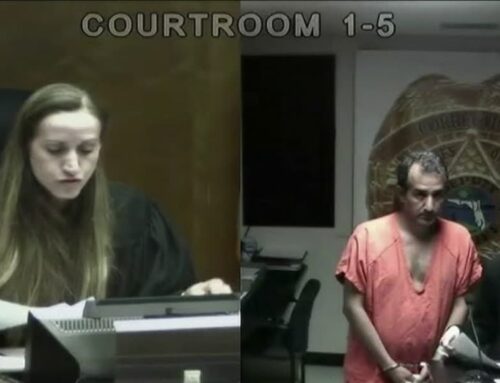How to Withdraw a Guilty or No Contest Plea in Florida
If you have entered a guilty or no contest (nolo contendere) plea in a Florida criminal case, you may be able to withdraw your plea under certain circumstances. Withdrawing a plea after it has been formally accepted by the court is not easy, but it can be done. This post will explain when and how you can file a motion to withdraw your guilty or no contest plea in Florida.
When a Plea Can Be Withdrawn
Before Sentencing
Under Rule 3.170(f) of the Florida Rules of Criminal Procedure, a defendant can file a motion to withdraw a guilty or no contest plea at any time before sentencing. The rule states that the court has discretion to allow withdrawal of the plea before sentencing but “shall” permit withdrawal upon a showing of “good cause.”
Exactly what constitutes “good cause” depends on the specific facts of your case. Possible grounds for withdrawal before sentencing include:
- Your plea was involuntary due to coercion, misrepresentation, mistake, misapprehension, or fear
- You received ineffective assistance of counsel relating to your plea
- The court failed to establish a factual basis for your plea
- New evidence has come to light establishing your innocence
- The prosecution breached the plea agreement
- The court did not properly advise you of the consequences of your plea as required by Rule 3.172
The key is that you must show your plea was unknowing, unintelligent, or involuntary under the totality of circumstances. While the trial court has discretion in ruling on a pre-sentence motion to withdraw under Rule 3.170(f), it should liberally grant withdrawal in the interests of justice where good cause is shown.
Within 30 Days of Sentencing
Under Rule 3.170(l), you can file a motion to withdraw a guilty or no contest plea within 30 days after sentencing, but only on limited grounds tied to the voluntariness of your plea and the court’s jurisdiction. Specifically, withdrawal after sentencing is permitted only if you can show:
- The court lacked subject matter jurisdiction to accept the plea
- The plea was involuntary
- The prosecutor failed to fulfill a promise that was part of the plea agreement
- You were denied the right to counsel
- Newly discovered evidence supports your claim of innocence
The grounds for withdrawal are narrower under Rule 3.170(l) than under the pre-sentence “good cause” standard in Rule 3.170(f). But if your plea was truly involuntary or you have strong new evidence of innocence, this rule still allows you a path to undo your plea within a month of sentencing.
After the Case Is Final
Once your criminal case becomes “final,” your only option to withdraw your plea is to file a motion for postconviction relief under Rule 3.850 of the Florida Rules of Criminal Procedure. A case becomes final when the opportunity for direct appeal has passed – 30 days after sentencing if no appeal is filed or when the appellate court issues its mandate if an appeal is taken.
In a Rule 3.850 motion after the case is final, you are still limited to the grounds listed in Rule 3.170(l), like the involuntariness of your plea or lack of jurisdiction. The difference is that you must meet strict procedural requirements under Rule 3.850, including filing within two years of your conviction becoming final (subject to exceptions).
How to File a Motion to Withdraw Your Plea
Pre-Sentence Withdrawal
To withdraw your plea before sentencing under Rule 3.170(f), you simply need to file a written motion requesting the withdrawal and explaining the facts and law supporting your request. The motion can be filed by your defense attorney on your behalf or by you directly if representing yourself.
There is no strict time limit for filing the motion as long as it is before sentencing. But it is wise to file it as soon as possible while the details surrounding your plea are still fresh.
The court will hold a hearing on the motion where you can present witness testimony and other evidence to meet your burden of showing good cause. If the court grants the motion, your plea will be withdrawn, and you can proceed to trial.
Withdrawal Within 30 Days of Sentencing
To withdraw your plea within 30 days after sentencing pursuant to Rule 3.170(l), you again file a written motion identifying one or more of the specific grounds in that rule. The motion must be filed within 30 days of the date your sentence was imposed in open court.
The court will hold an evidentiary hearing on the motion within 60 days. If you prove your plea should be withdrawn under Rule 3.170(l)’s strict standards, the court will vacate the judgment and sentence and allow you to go to trial.
Withdrawal After the Case Is Final
When seeking to undo your plea after the case is final, you must file a sworn Rule 3.850 motion for postconviction relief. This formal motion must fully describe your legal claims and the facts supporting them. It is subject to strict deadlines – generally within two years of your conviction becoming final unless an exception applies.
To succeed, you must establish that your plea was constitutionally involuntary or invalid on other grounds allowed under Rule 3.170(l). This requires proving both a legal ground for relief and resulting prejudice. The court will order an evidentiary hearing if it determines your sworn allegations would merit relief if proven.
Procedural rules are complex in Rule 3.850 proceedings, so hiring an experienced criminal defense attorney is highly recommended when seeking to withdraw a plea after your case is final. Withdrawing a formal plea of guilty or no contest is difficult under Florida law once you have been sentenced. That said, plea withdrawal is possible in the right circumstances if pursued diligently. An experienced criminal defense attorney can evaluate your case and advise you on the best course of action.
Contact an Experienced Criminal Defense Attorney
Withdrawing a guilty or no contest plea in Florida requires showing your plea was unknowing, unintelligent, or involuntary under the strict standards in Rule 3.170. This is difficult after sentencing or when the case is final, but can be done when supported by compelling facts. If you believe grounds exist to have your plea withdrawn, consult a skilled criminal defense lawyer to protect your rights. The attorney can review your case, advise you on the law, and fight to undo your plea if withdrawal serves your interests in justice and clemency.
CALL US NOW for a CONFIDENTIAL INITIAL CONSULTATION at (305) 538-4545, or take a moment to fill out our confidential and secure intake form.* The additional details you provide will greatly assist us in responding to your inquiry.
THERE ARE THOUSANDS OF LAW FIRMS AND ATTORNEYS IN SOUTH FLORIDA. ALWAYS INVESTIGATE A LAWYER’S QUALIFICATIONS AND EXPERIENCE BEFORE MAKING A DECISION ON HIRING A CRIMINAL DEFENSE ATTORNEY ATTORNEY FOR YOUR MIAMI-DADE COUNTY CASE








